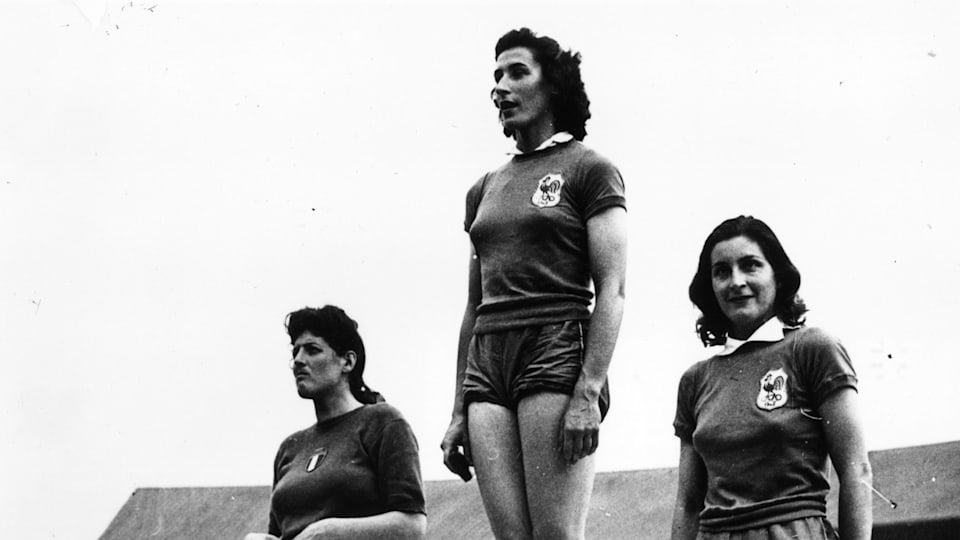Ostermeyer, the French pianist who won three medals in London 1948
To celebrate International Women’s Day (8 March), Tokyo 2020 will use the month of March to shine a spotlight on female athletes - past and present - who have changed the face of sport and society as a whole. Today: The story of Micheline Ostermeyer, the piano virtuoso who played sport for fun.

The background
Born into a literary and musical family, Micheline Ostermeyer embraced her vocation at an early age. By the time she was four, she was playing next to her mother, a piano teacher, and by 13 her playing skills had earned her a place at the Conservatoire national de musique in Paris, which cultivated artistic excellence.
At 16, with the Second World War now a threat, Ostermeyer temporarily interrupted her studies to join her parents and brother in Tunisia's capital city of Tunis. This return to the family fold encouraged Ostermeyer to work on her athletic abilities.
In athletics, she made her mark in the high jump, shot put and discus.
For Ostermeyer, apart from being careful not to break a wrist or finger, playing piano and doing athletics were both completely compatible with one another.
Sport was her way of letting off steam after hours spent at the piano: “I practised sport for pleasure; the piano was always my priority.”
The historic moment
Ostermeyer excelled in both areas, and her outstanding results − Conservatoire prize winner and multiple French athletics champion − were the expression of both body and soul.
At the London 1948 Olympic Games, which was the first post-World War II Games and saw 390 female athletes of 4,104 competing, success didn't look easy.
Especially because along with shot put and high jump, Ostermeyer competed in the discus throw, a discipline she had only discovered a few weeks before. But she managed to qualify for the final and with a 41.92m throw, she claimed her first gold medal. Later in the evening, she gave a concert to the French team to celebrate her title.
In the shot put, the virtuoso pianist took the lead on her first throw and nobody came close to matching her. Ostermeyer had won her second Olympic gold.
Three days later, in her last event, the high jump, she didn’t manage to claim a third gold. However, Ostermeyer eventually won bronze with a 1.61m jump.
The outcome
After two bronze medals at the 1950 European Athletics Championships in the shot put and 80m hurdles event, she retired in 1951. Ostermeyer became a full-time concert pianist and professor until her passing at the age of 78 in 2001.
In 1992, she was decorated with the Legion of Honour, the highest French distinction.
She was inducted in the Olympians for Life Project from the World Olympians Association, which honours Olympians who have made significant contributions to society and have left a lasting legacy to the world.
